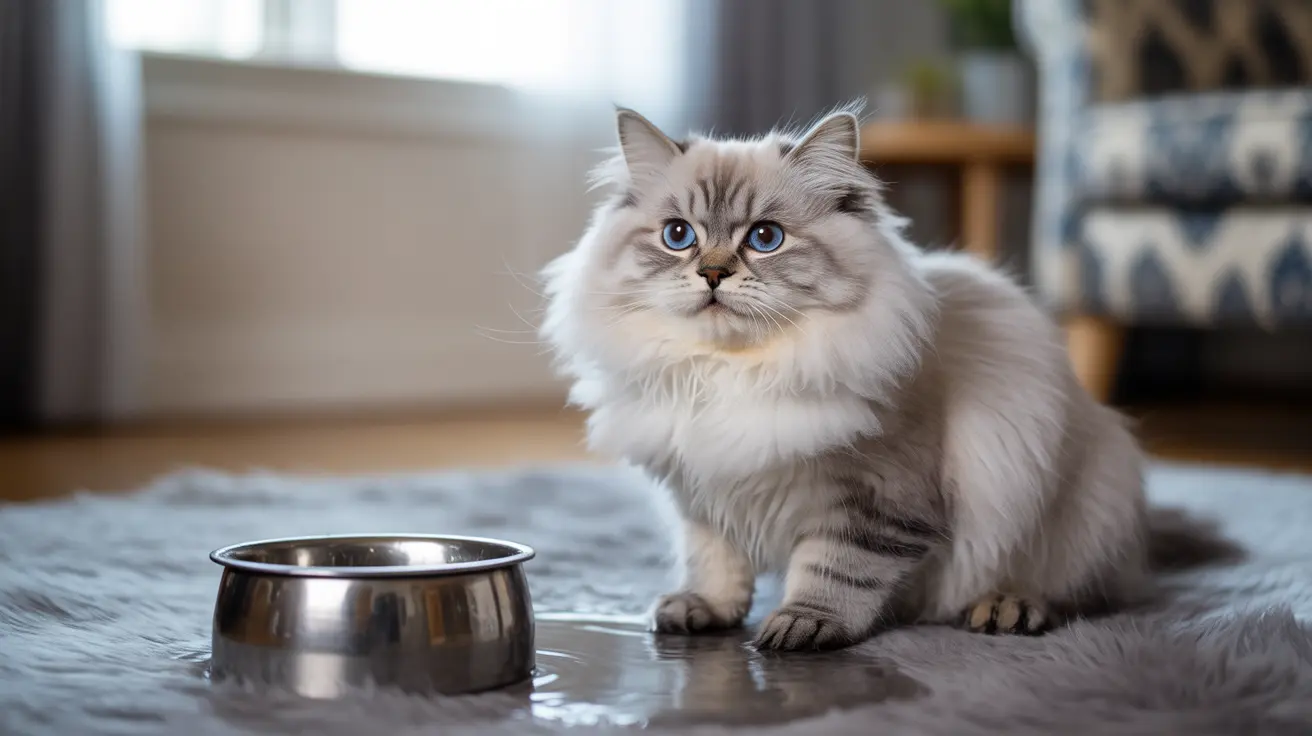Common Behavioral Causes of Water-Related Vomiting
Many cases of cats vomiting after drinking water stem from behavioral factors rather than medical conditions. The most common cause is drinking water too quickly, often called "speed drinking." Cats who gulp their water rapidly may trigger their gag reflex or overwhelm their digestive system, leading to immediate regurgitation.
Environmental factors can also influence drinking behavior. Stress, competition with other pets, or recent changes in water bowl location might cause your cat to drink too quickly when they finally access their water source.
Understanding Regurgitation vs. Vomiting
It's essential to distinguish between regurgitation and actual vomiting. Regurgitation is a passive process that occurs shortly after drinking, where water comes up with little effort and appears largely unchanged. True vomiting involves active abdominal contractions and may contain bile or other digestive contents.
Medical Conditions That Can Cause Water-Related Vomiting
Several health issues can cause cats to vomit after drinking water:
- Esophageal disorders
- Gastrointestinal inflammation
- Kidney disease
- Diabetes
- Hyperthyroidism
- Digestive tract obstructions
These conditions often come with additional symptoms like lethargy, decreased appetite, or changes in drinking habits. Any persistent vomiting should be evaluated by a veterinarian.
Prevention and Management Strategies
There are several ways to help prevent your cat from vomiting after drinking water:
- Use raised water bowls to promote better drinking posture
- Consider pet water fountains that encourage slower drinking
- Provide multiple water sources throughout your home
- Keep water bowls clean and fresh
- Feed smaller, more frequent meals to prevent an empty stomach
When to Seek Veterinary Care
While occasional vomiting might not be serious, certain signs warrant immediate veterinary attention:
- Frequent or persistent vomiting
- Blood in vomit
- Accompanying symptoms like lethargy or diarrhea
- Signs of dehydration
- Inability to keep water down
Frequently Asked Questions
Why does my cat vomit right after drinking water?
The most common reason is drinking too quickly, which can cause the water to come back up immediately. However, it could also be due to esophageal issues or other medical conditions if it happens frequently.
How can I tell if my cat is regurgitating water or actually vomiting?
Regurgitation happens quickly after drinking and involves little effort, with the water coming up largely unchanged. Vomiting involves abdominal contractions and may contain bile or partially digested food.
What health conditions could cause a cat to vomit after drinking water?
Several conditions can cause this, including esophageal disorders, gastrointestinal diseases, kidney disease, diabetes, and digestive tract obstructions. Any persistent vomiting should be evaluated by a veterinarian.
How can I prevent my cat from throwing up after drinking water too fast?
Use pet water fountains, provide multiple water sources, raise water bowls, and ensure regular feeding schedules. These measures can help slow down water consumption and reduce vomiting episodes.
When should I take my cat to the vet for vomiting after drinking water?
Seek veterinary care if vomiting is frequent, contains blood, is accompanied by other symptoms like lethargy or diarrhea, or if your cat shows signs of dehydration. Any significant change in drinking or eating habits should also be evaluated.
Conclusion
While cats vomiting after drinking water can be concerning, understanding the underlying causes and implementing appropriate prevention strategies can help manage this issue. Remember to monitor your cat's drinking habits and seek veterinary care when necessary to ensure their continued health and well-being.






